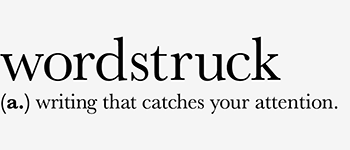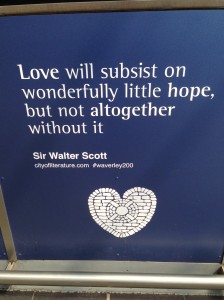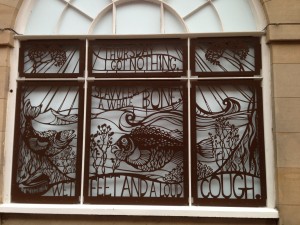On Friday evening I went to hear poet laureate Carol Ann Duffy reading some of her work as part of the Durham Book Festival. She’s a poet whose work I only know a little, but what I’ve read I’ve enjoyed and I’ve been particularly struck by some of the pieces she’s written since being appointed poet laureate in 2009.
She began on a sombre note, reading Last Post, written to commemorate the passing of the last veterans of World War One. But there were moments of humour too, as in her poems she explained, she often seeks to subvert, to irritate.
Michael Gove and the handling of English GCSE results this year sparked her ire, his name spat out, pantomime villain style to the audience. It’s not the first time she’s been involved in an education row. In 2008, her poem Education for Leisure was removed from a GCSE anthology after a complaint by an invigilator about its reference to knife crime. In elegant style, she responded with a poem, Mrs Schofield’s GCSE, which cites Shakespeare in defence. The audience laughed and clapped at this one.
Accompanied by a player of assorted pipes, a sort of fool to her queen, she lightened the mood with some readings from her collection The World’s Wife. Here she takes inspiration from stories and myths and give them a feminine twist , often as giving voice to the wife or partner, as in Mrs Faust or Mrs Midas, both of which she read this evening. I was delighted to be able to get a signed copy of this collection too.
She ended the evening with a poem called Liverpool, inspired by the Hillsbrough report. The last phrases were accompanied by the melody of “You”ll never walk alone.” I’m sure my cheeks were not the only ones dampened by tears.
I love poetry for that. For its power to capture a moment and make it resonate. I think we turn to poetry at times of celebration and of loss, when there’s more emotion that we want to give meaning. Perhaps what I like best about Carol Ann Duffy is that she doesn’t use the clever words, but the ordinary, everyday language to sound that resonance.
Carol Ann Duffy was in town as part of the book festival, but also because she has been involved in writing the scenario for a new ballet of Rapunzel, performed by BalletLorent.
During the poetry reading, she revealed that she’d seen it the previous night and someone in the audience piped up “Wonderful”. I was glad I’d got tickets for the following performance as what I saw had me in raptures and tears.
I don’t see much ballet and it’s years since I danced myself, but there is something so incredibly moving and expressive about bodies in motion. I admired it at the Olympics, the endless grace, power and control of the athletes, but perhaps in dance it’s brought even more sharply into focus by the story telling.
When we think of Rapunzel, we think of the princess in the tower and her long hair. But the roots of the story as told by the Brothers Grimm are often forgotten. This production goes back to the dark origins of the fairy tale, with a woman wasting away for want of the rampion (a kind of vegetable, known as rapunzel in German) that grows in the witches garden.
When he’s caught stealing it, the wife’s husband makes a terrible deal and promises the witch their first born child to escape punishment. The child, is, of course, Rapunzel.
This is quite simply a stunning production that draws on the emotions of love and loss, motherhood, growing up, losing and finding a child. I would encourage anyone with even the slightest interest in dance to go and see it.
The dancers tackle any number of challenges. The female costumes which have a kind of flexible hooped skirt become part of the storytelling, wrapping and unveiling. The simple metal sets are wheeled and turned to become the tower in which Rapunzel sits and swings and dances around the ironwork high above the stage like a monkey. It’s more like beautiful climbing than traditional ballet.
I was particularly struck by the talent and enthusiasm of the younger members of the cast who bring real joy and delight to the openings of the two acts.
The senior members really were outstanding, bringing to life two lizards who act as the witch’s familiars, and the witch herself who tackles whips and even skates as part of her performance.
In dance, they tell the story with the whole of their bodies, each emotion played out with movement, from the strong and powerful, to soft, loving and sensuous. In the second act, as parallels are drawn between two sets of characters who are suffering the loss of a child, the principal dancers express that loss with every movement and sinew of their bodies. The simple movement of a dancer’s foot was heartbreaking and again brought me to tears.
I consider it a sign of an excellent performance if there’s a moment of silence before the applause. It shows the audience needs a moment to adjust, to reground themselves in the here and now, having been truly immersed in the story. There were two such pauses this evening, one after Carol Ann Duffy’s reading and another after the finale of Rapunzel.
Ballet Lorent are touring with this production, currently in Hull, then returning to Newcastle next year, before taking it to London and Oxford. I’d thoroughly recommend going to see it.


